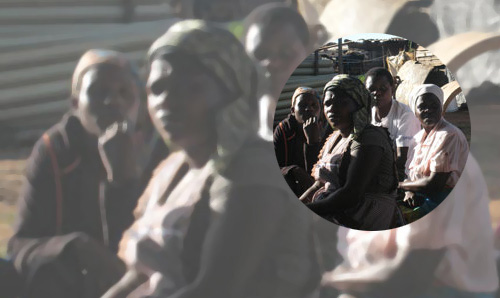Upgrading informal settlements via women-led community action
New forms of knowledge co-production are leading to alternative models of urban development
The challenge

Over one billion people live in informal settlements in towns and cities of the Global South. Inadequate housing, lack of basic services and fear of eviction, are the norm.
This state of almost permanent insecurity creates multiple development challenges. According to WHO figures, the percentage of urban residents with access to improved sanitation in sub-Saharan Africa remained at only 41% between 1990 and 2010.
Whilst progress has been achieved, a considerable amount remains to be done.
The impact
Our partnership with SDI has the potential to re-make academic grassroots collaboration for the 21st century.
Professor Diana Mitlin / Professor of Global Urbanism
New forms of engagement, knowledge co-production and empowerment are required in order to change mind-sets and secure support for alternative ways of ‘doing urban development’. These must build on the preferences and perspectives of those who live in informal settlements, in order that their voices are heard and taken seriously in regional and global debates.
In 1996 Shack/Slum Dwellers International (SDI) was formed to strengthen the voice of those living in urban poverty. SDI is an international network of 34 national federations of landless and homeless communities with women-led savings groups at the core. This collaboration is now recognised as an important mechanism for generating change and facilitating collective action. SDI has received funding from the Bill and Melinda Gates Foundation, Swedish
International Development Cooperation, and Cities Alliance (a consortium of bilateral development assistance agencies) and multiple engagements with UN agencies.
Alongside colleagues at GDI, Diana Mitlin has fostered a long-term relationship with SDI, working with over one million savers and generating a unique database of almost ten thousand informal settlements. This work has assisted SDI to strategise the development of their Urban Poor Fund International and has supported SDI to develop alternative models of development assistance that recognise the need to empower and capacitate grassroots organizations and their members.
Significantly, this relationship has extended into postgraduate teaching, with community leaders delivering lectures within IDPMs ‘Citizen Led Development’ course unit. This has run for six years, enabling over one hundred students to receive a more grounded account of community-led approaches to development, shaping their future careers.
Our research
Research in India, Namibia and Zimbabwe has strengthened SDI’s understanding of current scholarly debates, and increased awareness of SDI to a broader set of stakeholders.
- Diana Mitlin is working with SDI’s local affiliate to analyse the contribution of civil society to the Indian government’s urban programming.
- Beth Chitekwe-Biti led a pivotal study of changes in Windhoek’s spatial form, showing the impact of social movements on the locations of low-income neighbourhoods.
- Manchester PhD candidate, Wayne Shand, has completed a study of the ways in which SDI’s organising practice in Harare is catalysing and institutionalising changes towards an inclusive city, in terms of both bottom-up engagement and improvements in living conditions.
Working with The University of Manchester has provided momentum and legitimacy to SDI’s work and, for Manchester’s researchers, this partnership sets a high level of best practice in how academic experts can work in close collaboration with NGOs and grassroots organisations.
The objective of much development activity is to support disadvantaged individuals, households and communities, and Manchester’s poverty researchers lead the way in developing partnerships and working directly with these groups.
In the case of SDI, our institutional partnership enables relations of knowledge and power to be realigned, and in so doing it increases the effectiveness of our contribution towards addressing issues of poverty and inequality.
Key people
- Professor Diana Mitlin (The University of Manchester)
- Beth Chitekwe-Biti (Director, Dialogue on Shelter, Zimbabwe)
- Wayne Shand (Honorary Research Fellow, The University of Manchester)
Further information
Listen to Diana talk about rights based approaches to development:
